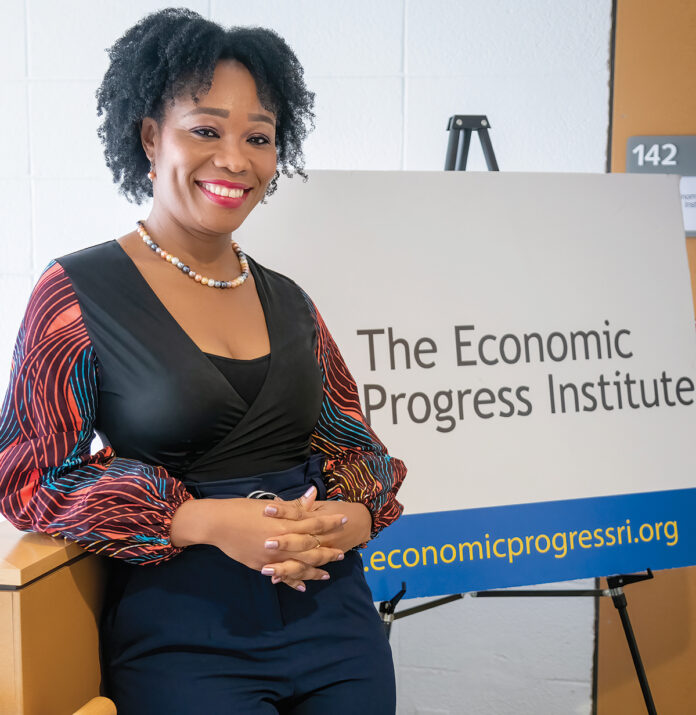Weayonnoh Nelson-Davies |
Executive director, Economic Progress Institute
1. How would you describe the Economic Progress Institute and its mission? At EPI, our mission is to advocate for policies that improve economic security and opportunity for Rhode Islanders. We do that by informing both community leaders and policymakers about policy proposals with easy-to-understand analysis and data. We are a voice for and with low- and modest-income Rhode Islanders, whose lived experiences are critical to policy change at the Statehouse.
2. You’ve been executive director since January. What is your process for determining a vision for the institute, and what areas will you focus on? My first step for determining a vision for EPI is to make sure the process is a collective effort, involving staff and board and impacted communities, partners and coalition members. … Under my leadership, we will continue to focus on the care economy and other economic equity issues, address worker and immigrant equity issues, and advocate for equity as the state makes decisions about health care, housing and our democracy.
3. The institute has been involved with developing recommendations for spending the state’s $1.1 billion in American Rescue Plan Act funding. What do you see as the institute’s role as funds are dispersed? We will weigh in [on the governor’s proposed spending], as well as suggest new investments of these funds, including the allocation of funds to support the network of adult education providers that offer people in need of foundational skills – literacy, English language, digital literacy – the opportunity to gain skills they need to succeed in the workforce.
4. How does your previous role as an attorney inform your vision for the institute? My passion for social, economic and racial justice first came from my lived experiences as a Liberia’s civil war survivor, an immigrant and a Black woman – I know what it feels like not to have access to opportunity and justice and to be excluded from being heard about decisions that impact your life. Being a legal aid attorney for the last 14 years helped me to better understand the direct and systemic impact of poverty. … I collaborated with community partners; managed projects like medical-legal partnerships; led diversity, inclusion and racial equity efforts; and supported and mentored other advocates.
5. What attracted you to EPI? I was excited about the opportunity to lead right here in Rhode Island and advocate for policies that could lead to meaningful impact for low- and modest-income Rhode Islanders in a more intentional way.
Jacquelyn Voghel is a PBN staff writer. Contact her at Voghel@PBN.com.













